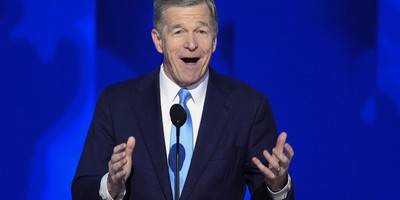The current push to drastically increase the national minimum wage seems to be lacking an economic framework. The economy is a system that is interlocking and interrelated. If one item changes, then other items will also change.
So, increasing the pay of those making minimum wage will also increase the expenses incurred by the businesses that employ them. Those businesses, in turn, will increase the prices of their services or products to cover those increased costs. In response, their customers will reduce their demand for those products.
In the end, those businesses that discover they cannot pass the full increase in costs to their customers will decrease their demand for workers. This will result in more people out of work or fewer people hired. The idea that one item can be changed legislatively without having any other effect is, well, naive and an indication that we need to educate the nation about how the economy works.
The Democrats in Congress have introduced a bill to raise minimum wage to $15 over the next five years. The current minimum wage is $7.25. Granted, some states have higher minimum wages (California is currently $12 per hour, New York $11.10 per hour). This state-by-state approach of setting a minimum wage makes sense in a country as big and economically diverse as ours. Clearly, the cost to live in California is higher than the cost to live in Georgia.
In 2017, Go Banking Rates conducted a study that calculated the cost of living by state. "This cost of living comparison measures each state against the average cost of living in the United States as a whole," noted their press release. The study included "housing, groceries, utilities, transportation, healthcare and miscellaneous expenses." The results? The cost of living in New York was 35% higher than the median national cost. The cost of living in Oklahoma was 11% lower than the median national cost. This means that, on average, it costs over 50% more to live in New York than Oklahoma.
Recommended
In comparison, Oklahoma's minimum wage is $7.25 per hour, 50% less than the current minimum wage in New York. A state solution to minimum wage setting clearly makes sense, as state-to-state living costs vary greatly!
So what will happen if the federal minimum wage is increased to $15 per hour? For some states, there will be no difference (New York law is already set to raise the rate to $15 per hour). But the states with lower costs of living will bear the burden of the federal bill.
This week, the nonpartisan Congressional Budget Office released a report that analyzes the costs of implementing a higher minimum wage. "In an average week in 2025, the $15 option would boost the wages of 17 million workers who would otherwise earn less than $15 per hour ... But 1.3 million other workers would become jobless," it concluded.
Additionally, the increase in the minimum wage would decrease the overall growth of the economy due to increased inefficiency. (Remember, not all costs can be passed on to customers, so fewer products and services will be produced).
So, let's look at what else is happening in our economy. Last week, the Bureau of Labor Statistics reported that the June unemployment rate was 3.7%. This is the lowest rate for unemployment since before 1990. This low unemployment rate means that the labor market is tight and it is hard to find good workers. This has and will continue to lead to rising wages. In fact, that is what's happening. According to the BLS, the employment cost index (compensation for employees) has risen 2.7% in the last 12 months.
Wages are rising because fewer people are available to fill open jobs. But the best way to see you own pay check rise? Become more valuable to your employer through increased training, education or job experience. Simply costing more, while offering no additional value, is not the answer, and that is what the federal minimum wage bill will do.
Real and lasting wage increases will come with increased training and education. Based on the current discussion, we might want to start with some basic financial literacy and economic education for all.

























Join the conversation as a VIP Member